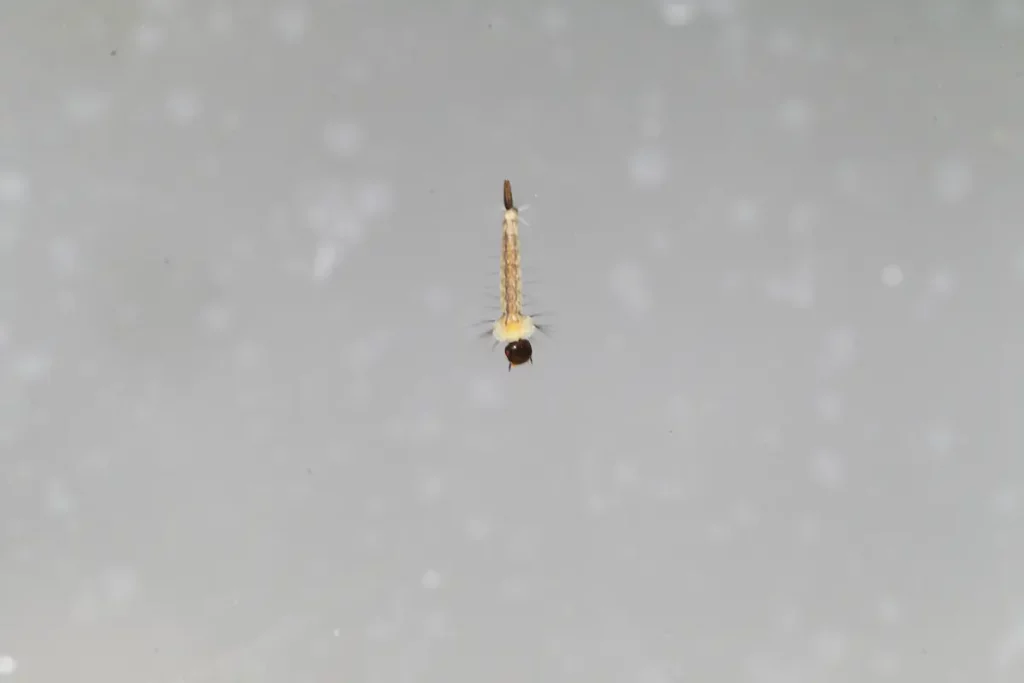Wondering if mosquitoes are bad in Japan? Mosquitoes in Japan are generally quite plentiful during the summer months because the weather turns very warm and humid, which is perfect for breeding. Luckily, Japanese mosquitoes are not known to carry many diseases except for Japanese Encephalitis, in which many who get infected with it experience mild or no symptoms.
Mosquitoes are pretty bad wherever you go in the world, but with Japanese summers being incredibly hot and humid, travelers to the country might be wondering exactly how bad mosquitoes are in Japan over the summer months.
Now, most of you reading this might be thinking that I can’t just throw out such a scary couple of words like Japanese Encephalitis and not explain it properly, so before we carry on with how to repel mosquitoes in Japan, let’s discuss that first.

Related Reading: Are Mosquitoes Really Bad in Alaska? & Are Mosquitoes Bad in Las Vegas?
Japanese Encephalitis
This is a virus that is spread to people through mosquito bites, generally in different parts of Asia and the Western Pacific. Fortunately, the chances of actually getting sick from it are fairly low – about 1 in every 250 infections needs treatment from a hospital. That means that even if you get infected, the chance of suffering symptoms and needing help is generally unlikely.
However, the symptoms to look out for are:
- Gastrointestinal pain
- Vomiting
- Fever
- Headache
- Disorientation
- Coma
- Seizures (More common in children)
If you’re hit with these after a mosquito bite, then make sure you get yourself down to a hospital, but frankly, the chances are quite low of getting sick. If ‘quite low’ chances don’t really cut it for you, then you can always get the vaccine before you travel, and try one of the following techniques to prevent the suckers from nibbling away at you.
Related Reading: Are Mosquitoes Herbivores or Omnivores?
Mosquito Repellents
Prevention
This is always the first and easiest step. Check to see if your accommodation is near stagnant water where mosquitoes may lay their eggs. The rainy season in Japan usually starts between June and July and keeps going until around fall time, so making sure you aren’t hanging around horrible pools of water is essential.
Tip it out of any place where you find it, and don’t linger if you do find one.
When going outside, wear long-sleeved shirts and full-length pants so that no skin is exposed. Make sure you choose thick fabric clothing which hangs loosely, this will do better to protect you than thin material, or clothing that hugs your skin tightly.
Cover the windows and all entrances with a mosquito net as well, just for some cheap, easy protection.
Chemical Repellents
Like any country with a mozzie problem, Japan has its own selection of chemical weaponry against the menace. One thing to keep in mind is that if you’re looking for anything mosquito-related, you might want to learn two words:
- Kayoke – this is mosquito repellent
- Katori – this is mosquito killer
Japan sells all kinds of products that you can spray or apply to your skin, some of which are specifically made for families with kids, which means they shouldn’t smell too strongly.
[amazon bestseller=”Mosquito Repellents” items=”3″ template=”table”]
Natural Repellents
Okay, so you’re not big on chemicals, maybe. That’s cool; there are many, many natural products that you can use to keep them away from yourself. These include many different and sweet-smelling oils which you can dab on your skin to keep the suckers from gnawing, such as:
- Lavender Oil
- Citronella Oil
- Lemon Eucalyptus Oil
- Neem Oil
If your skin is sensitive, there are other ways to keep the bugs away – some sources recommend eating a lot of garlic to make your blood unpalatable, and as an extra bonus, garlic is supposed to be quite good for your heart!
There are many natural repellents, so if none of these tickle your fancy, I’m sure you can find some which do with a little research.
Mosquito Killers
Okay, so you’ve done being nice. Time to whip out the Katori and end this battle once and for all. Here are a few things you can use to kill these bugs and finally be able to holiday in Japan in peace.
Bug Zapper
Simple, easy, and oddly satisfying, these zappers are often an old favorite for folks who have just had enough of these things. They are excellent for ridding your home of mosquitoes and all kinds of other pests.
Just remember, you definitely get what you pay for in this regard, and the expensive ones really do outperform their cheaper counterparts. Just be sure you’re perfectly content with the effects of having a bug zapper in the same room as you.
Mosquito Extermination Mat
Mosquito mats are little containers that use batteries or a plug outlet to run a heater and release insecticide when it heats up. It can last from half to a full day.
Unlike more traditional methods like the mosquito coil (Which I would not recommend due to its supposed burning being the equivalent of 75-137 cigarettes in your home and therefore is linked to respiratory diseases) it has no smell and no risk of fire.
Liquid Electric Mosquito Exterminator
Along the same vein as the mosquito mat, this one is more popular than its a flatter cousin. This is a little pot that essentially does the same thing- releasing insecticide into the room when it is plugged in. The device is filled with liquid insecticide, hence the name.
It has the edge over the mosquito mats by being able to last a month or more on its own, which is incredibly useful – in today’s busy time, we could all use a ‘set it and forget it approach these things.
Related Reading: The Top 11 Places in the World with the Worst Mosquitoes
Conclusion
In conclusion, mosquitoes in Japan are not particularly worse than in any other country in terms of bug population but have been known to spread a disease called Japanese Encephalitis occasionally, although it is rare.
To combat this, wear long sleeves, keep away from stagnant water and use mosquito nets as a preventative, but if you would like more affirmative action against the bugs, you could always use the variety of bug zappers, mosquito sprays, and insecticide mats and pots available in Japan.
